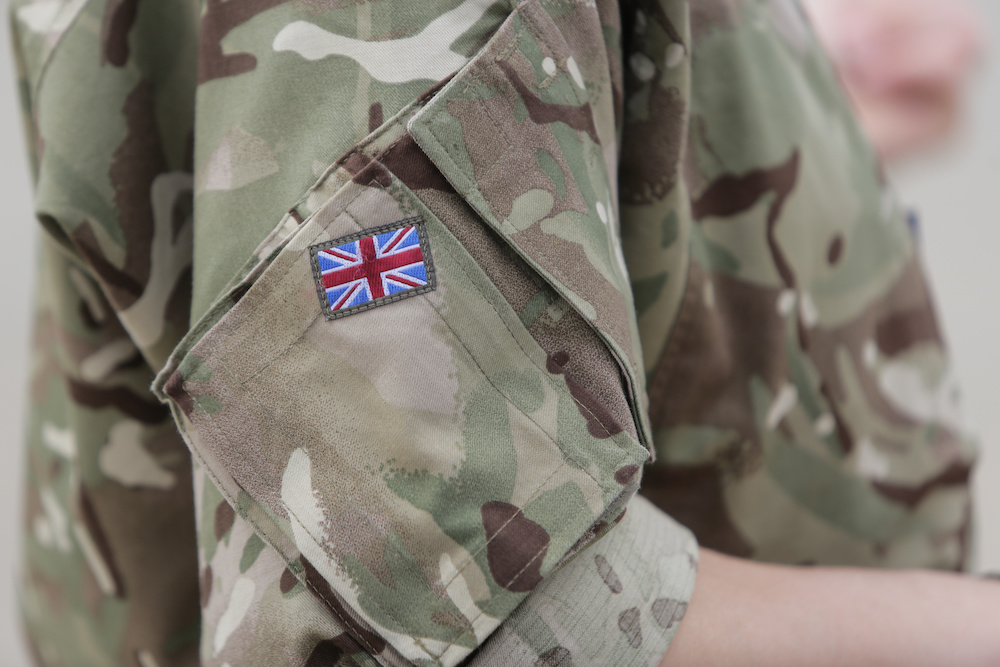The IGPM presented a webinar yesterday (29th June) on Veteran-Friendly Surgeries. Are you one? Should you be? Why would you be? And what do you need to do to get that accreditation?
We were accompanied by two ‘expert’ guests – Brigadier Robin Simpson (retired) FRCGP, and Darren Davies, Staff Sergeant, Royal Military Police (also retired). Robin has been at the forefront of ensuring that GP surgeries provide appropriate and timely care to our forces’ veterans. Darren gave us his perspective, as a veteran, of attempting to negotiate the healthcare system after 24 years in what can be best described as an ‘institution’. As Darren said, many young men and women join the forces at 17 or 18 years old and then spend a number of years being told what time to get up, go to bed, eat, drink, what to wear, etc… After years of being told what to do, to then try and navigate the NHS can be a daunting prospect.
Darren confirmed that many ex-forces personnel will not ask for help; they’ve had a lifetime of their Commanding Officer needing them to do something, and to do it now, so they’re used to ‘sucking it up’ and not moaning and groaning. As Robin pointed out, however, when they do come to the surgery, they will often just mention a headache, or a backache, or something very simple, but they may actually have a background of PTSD or significant mental health issues. So, if that code is in their medical records, it can prompt further questioning which will reveal a bigger picture. There can also be problems associated with ‘survivor guilt’ – where someone struggles with the reality of surviving a bomb blast, a mortar attack, or gunfire, for example, when close friends have been killed in action.
Darren spent the vast majority of his career in army accommodation. This meant that, on leaving the service, he had no credit history (there had been no need to get a mortgage). With no credit history, you can’t get a loan, much less try to buy a house of your own. Without support, it isn’t surprising that many veterans fall on hard times as they’re left to their own devices.
So, what can we do to make things easier? Well, firstly, have a look at this document on Practice Index PLUS: Guidance on how to become a veteran friendly accredited GP practice
Then, check out the RCGP, where there’s a host of information: www.rcgp.org.uk/veterans
There are over 1,300 practices currently accredited as ‘veteran friendly’ – but we need to improve that figure. Those of us who have gone through the accreditation process can confirm that it isn’t a difficult or onerous task.
Involve your PPG and Social Prescriber; Robin and Darren both agreed that veterans like nothing better than telling their stories over a cup of tea and a biscuit, so consider running a veteran’s café event or social get-together. This might also have the added benefit of improving their network of friends and reducing isolation.
As a veteran-friendly practice, our registration form asks the vital question: ‘Are you a veteran of the armed forces?’ A positive response will mean that a code is entered onto their records (enter ‘Military Veteran’ in your search field). You can further code as army/navy/RAF veteran, if you want, but ‘keep it simple’ would be my suggestion. Robin suggested coding this as a ‘problem’; then it’ll hit all the summary care records and veterans may sometimes be given a priority of care depending on their circumstances. We’re not going to argue the rights and wrongs of this here, but coding veteran status is, in my view, really important.
Additionally, it could be helpful to code anyone in that veteran’s family as a ‘member of military family’ (again search using this phrase). Many families will be displaced after years of travelling around with the forces. There’s a high divorce rate among forces personnel and Robin highlighted that alcohol abuse among veterans is very high. Again, alcoholism on a background of military service isn’t unusual.
We do also need to remember that not every veteran will be an older man or woman. It’s highly likely than anyone over the age of 83 will have been part of National Service at some point, but as Darren stated, in order to be classed as a ‘veteran’, you only need to have served for one day. Anyone signing up to the forces can do their basic training and then decide to leave; they don’t have to see ‘active service’ in a war to be classed as a veteran. Again, we can argue whether we think that’s right or not, but it isn’t our place to judge.
As the wife of a veteran, I’ve heard stories that I don’t want to share with anyone – they make for traumatic listening – but giving my husband the time and space to talk has helped him. We owe our forces’ veterans a debt that can never be repaid for their service to their country, for keeping us safe. The least we can do is to ensure they get access to the healthcare they need and deserve.
If you’d like to watch the webinar, you can find it here:
Nicola Davies





0 Comments